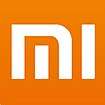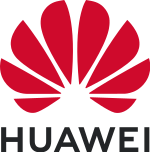BATX
BATX stands for Baidu, Alibaba, Tencent, Xiaomi, the acronym for the four biggest [1] tech firms in China, counter-standing by GAFA (Google, Amazon, Facebook, Apple)[2] in United States. BATX are few of the first tech companies started in the 2000s, in the rise of Chinese tech revolution and became widely used among Chinese netizens. Notably after 2015, some other tech companies like Huawei, DIDI, JD and ByteDance have also became some of the up-and-coming biggest tech giants in the industry.[3][4]
List
| Name | Revenue by 2018 | Employees | Headquarter | Since | CEO |
|---|---|---|---|---|---|
| Baidu | $14,874 mm [5] | 42,267[6] | Beijing, China[5] | 2000[7] | Robin Yanhong Li[5] |
| Alibaba | $38,898 mm[8] | 101,958[9] | Hangzhou, China[10] | 1999[11] | Jack Ma[11] |
| Tencent | $312,694 mm[12] | 54,309[13] | Shenzhen, China[14] | 1998[14] | Ma Huateng[15] |
| Xiaomi | $44,421 mm[16] | 14,513[17] | Beijing, China[18] | 2010[18] | Lei Jun[18] |
History
2000, China under Chairman Jiang Zemin's instruction, proceeded the Golden Shield Project to protect the media and information flow within the China.[19] The Golden Shield Project controls China's internet content to contain influences from ideologies of the western medias as well as implement surveillance over Chinese netizens online activities. Under the Golden Shield Project, many foreign tech companies such as Google, Facebook, Netflix etc. got excess denied from the Great Firewall,[20] the internet censorship of China. At the same time, the population of Chinese netizen population grew substantially since the introduction of internet in 1994.[19] By 2018, China owns 800 million netizen population, 98% of which are mobile users.[21] Many Chinese tech companies get to flourish under this unique system without the competitions from the foreign businesses. BATX, are few of the earliest tech companies who saw the chance and get to occupy the internet market in the early ages of China's internet transformation.[2]
Influences

Baidu
Baidu Search is the most popular search engine in China. Counter-stood by Google, which is the biggest search engine company founded in United States.[22] Google is banned in China, so Baidu provides a unique search experience for the China's netizens.[23] Other than Baidu Search, Baidu also provides many different other products, such as Baidu Map, Baidu Cloud, Baidu Tieba, Baidu Knows, catered to different needs for Chinese netizens. Baidu accounts for 64.55% of the search engine market share in China,[24] and also is the third biggest search engine website in the world.[22]
Alibaba

Alibaba Group first started as an e-commerce company in 1999 in Hangzhou China. Now Alibaba Group has became a giant tech corporation which includes branches like e-commerce, entertainment, online payment, cloud-computing and AI technology. Its most famous C2C products would be Taobao and Alipay, which is closely incorporated into every Chinese online shopping experience. In 2017, Taobao.com is the third most visited website in China after Baidu.com and QQ.com.[25] Taobao accounts for 58.2% of the e-commerce market share in China by 2018.[26]
Tencent
Tencent was first started by Ma Huateng as Social Network Platform. Most Chinese netizens came to know Tencent through its messaging platform QQ. Now, Tencent has developed much more areas of business which includes Social Platform, Entertainment, e-commerce, Online Payment, Information Services and Artificial Intelligence.[27] WeChat, one of the most famous messaging app from Tencent, has 169.6 million active monthly users by 2018.[28] WeChat is the third most commonly used messaging app after WhatsApp and Messenger in the world by 2018.[29] Tencent Entertainment is also the No.1 in the online gaming industry in the world by 2018, which Sony follows right after.

Xiaomi
Xiaomi, different from three others, focuses on tangible hi-tech devices such as smartphone, smarthome, smartTV and other smart devices. 2/3 of the Xiaomi profit is generated through smartphone sale.[30] Xiaomi became the biggest smart phone maker in China at 2014 before plummed back at the fifth place at 2016.[30]
Other tech companies in China

Although BATX has been a very popular acronym for people when referring to the biggest Chinese tech firms. There are also many other tech firms has picked up after 2010 and also became the leaders in their respective fields. On Forbe's 2019 Global 2000, 20 out of 184 tech companies on the list are from China.[31]
Huawei
Huawei became one of the most well known Chinese tech companies in the world by the 2010s.[32] Founded by Ren Zhengfei at 1987[33] at Shenzhen China, it focuses on information and communications technology (ICT) infrastructure and smart devices.[34] Huawei became the No.1 at Telecommunication network in the world by 2012 and launched its first 5G smartphone, Mate 20 X 5G in July 2019.[35] In 2018, Huawei generated revenue of 721,202 mm RMB of revenue, which is approximately 101,910.32 mm dollars.

DIDI
DIDI Chuxing is notably the most popular taxi hailing service app in China. In 2018, there are over 30 million rides being used on DIDI each day.[36] DIDI is available at more than 400 cities in China and owns 550 million users.[36] DiDI accounts for 71.4% of the taxi hailing service share in China.[37]
References
- "Biggest Chinese tech companies: From Alibaba and Huawei to Tencent". NS Business. 2019-02-04. Retrieved 2019-10-15.
- Chen, James. "BATX Stocks". Investopedia. Retrieved 2019-10-17.
- Hooker, Lucy; Palumbo, Daniele (2019-05-20). "Why Huawei matters in five charts". Retrieved 2019-10-15.
- "Top 7 Chinese Tech Companies". www.chinawhisper.com. Retrieved 2019-10-23.
- "Financial Reports". Baidu Inc. Retrieved 2019-10-15.
- "China: Baidu employees 2018". Statista. Retrieved 2019-10-15.
- "Company Overview". Baidu Inc. Retrieved 2019-10-15.
- "Alibaba Group". www.alibabagroup.com. Retrieved 2019-10-15.
- "Alibaba: number of employees 2019". Statista. Retrieved 2019-10-15.
- "Alibaba Group". www.alibabagroup.com. Retrieved 2019-10-15.
- "Alibaba Group". www.alibabagroup.com. Retrieved 2019-10-15.
- https://www.tencent.com/en-us/articles/13007161553157789.pdf
- "Tencent: number of employees 2018". Statista. Retrieved 2019-10-15.
- "Tencent 腾讯 - Home". www.tencent.com. Retrieved 2019-10-15.
- "Ma Huateng". Forbes. Retrieved 2019-10-15.
- "Archived copy" (PDF). Archived from the original (PDF) on 2019-04-14. Retrieved 2019-10-16.CS1 maint: archived copy as title (link)
- "Do You Know How Many Employees Has Xiaomi?". XiaomiToday. 2018-05-22. Retrieved 2019-10-16.
- Xiaomi Company Profile. https://craft.co/xiaomi
- "» The Great Firewall of China: Background Torfox". Archived from the original on 2008-05-05. Retrieved 2019-10-17.
- Chew, Wei Chun (2019-01-12). "How It Works: Great Firewall of China". Medium. Retrieved 2019-10-17.
- McCarthy, Niall. "China Now Boasts More Than 800 Million Internet Users And 98% Of Them Are Mobile [Infographic]". Forbes. Retrieved 2019-10-17.
- Forsey, Caroline. "The Top 7 Search Engines, Ranked by Popularity". blog.hubspot.com. Retrieved 2019-10-22.
- Seth, Shobhit. "Baidu vs. Google: What's the Difference?". Investopedia. Retrieved 2019-10-17.
- "Baidu search engine market share in China May 2019". Market Me China®. 2019-06-10. Retrieved 2019-10-22.
- "The Success of Taobao on the Chinese Internet - Daxue Consulting". daxueconsulting.com. Retrieved 2019-10-22.
- "Infographic: Alibaba continues to lead retail e-commerce sales in China in 2018". Statista Infographics. Retrieved 2019-10-22.
- "Tencent 腾讯 - Products & Services". www.tencent.com. Retrieved 2019-10-22.
- Huang, Echo. "Charted: WeChat's astronomical growth abroad". Quartz. Retrieved 2019-10-16.
- Kim, Larry (2018-09-20). "The Top 7 Messenger Apps in the World". Inc.com. Retrieved 2019-10-16.
- Delventhal, Shoshanna. "How Xiaomi Makes Money: Selling Smartphones and Connected Devices". Investopedia. Retrieved 2019-10-22.
- Ponciano, Jonathan. "The Largest Technology Companies In 2019: Apple Reigns As Smartphones Slip And Cloud Services Thrive". Forbes. Retrieved 2019-10-22.
- "How Huawei became the world's No 1 telecoms gear supplier". South China Morning Post. 2019-02-18. Retrieved 2019-10-16.
- "Huawei Technologies Co. Ltd. SuccessStory". successstory.com. Retrieved 2019-10-16.
- "About Huawei". huawei. Retrieved 2019-10-22.
- Porter, Jon (2019-07-12). "Huawei's first 5G phone is launching this month". The Verge. Retrieved 2019-10-22.
- "25 Amazing DIDI facts and statistics". expandedramblings. 2019-09-09. Retrieved 2019-10-22.
- Markets, Research and. "Chinese Ride Sharing Market 2017-2018 & 2025: Major Players are Didi, Dida, AA Pinche, Laihui, and Tiantian". www.prnewswire.com. Retrieved 2019-10-22.